One friend responded to my blog on dialog with a thought provoking question: Is it possible to have a national dialog on race in today’s politically correct climate? The easy answer is –yes, if both sides agree to the steps in a dialog.
In my experience neither the politically correct nor the anti-politically correct have shown strong tendencies toward being willing to listen, to accept strengths in the other’s position and to accept weaknesses in their own position. It would take great leadership on both sides. I look for hope anywhere I can find it. That is why I was so happy to read the following:
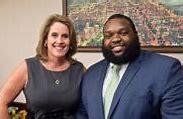
Good News: “On paper, Rep. Sheryl Delozier, a Republican from a predominantly white conservative district, and Rep. Jordan Harris, a Democrat from a predominantly black Philadelphia district, would be considered an unlikely alignment. If they sat on a cable-news panel they’d be expected to yell and point fingers at each other over partisan slights. On social media, the idea of them being friends would be considered an abomination worthy of canceling them both. But since 2018, they have been working together on criminal-justice reform — and making real change happen.
“We’ve spent a significant amount of time together over the last two or three years working on this. And while I may vehemently disagree with her on certain issues, I do not question her motives. And I don’t question her character as a person. She’s a mother, she’s a wife, she loves her family. She loves her husband, who was a police officer. She likes to laugh and joke at the pranks that her husband’s police department plays on him,” Harris says admiringly.
“I look at some of her experience based off of where she comes from. And I don’t begrudge her or I don’t judge her for that,” he says, adding with a broad smile: “That doesn’t mean that I won’t fight like hell on other issues we disagree on, but we should all do it from a place of respect and be better examples for other people who want to serve their communities.”
Harris and Delozier are proof that, on a very local level, politicians from different parties can come together to fix a common problem through careful discussion and deliberation, unlike the bail-reform initiative in New York, which was pushed through by partisan lawmakers who failed to consider its ill effects. “
Civil discourse on matters of agreement is great. The tougher step is dialog in areas of disagreement. Representative Harris is taking great steps in that direction when he says he does not question her character or motives.
My Weakness. A national dialog on race is out of my hands but I can and should keep trying to involve myself where I can with the people at a personal level. I must, listen. I must see other’s views and I must understand my own weaknesses. I have worked hard to try to understand my weaknesses with regard to a racial dialog In my opinion the major plank in my eye, the major problem that makes listening difficult is my past experience.
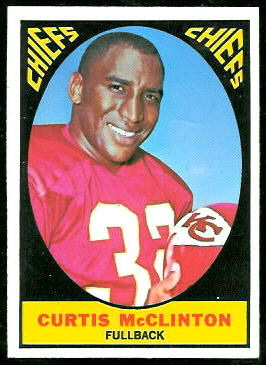
The Chiefs going to the Super Bowl reminded me how different my experiences have been from the tragedies and problems of our racial history.
The last time the Chiefs were in the Super Bowl, Curtis McLinton was on the team. Curtis is the son of the first black state senator in Kansas history. He was a great athlete, great student, very popular and in 1955-56 the Home-Coming King of Wichita North High School (my high school). And he kissed the white Queen! Think how that would be received in Mobile Alabama in the 1950s.
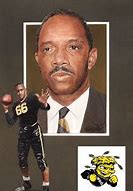
A seminal experience for me also occurred in the fifties. I worked at a drab green snack shack on the tenth hole of the INTEGRATED Semmes Park golf course. Once a week, four black men stopped to get candy bars, a sandwich, a drink, and a pause from the heat.
From their banter, one lingered, and befriended me. He was a powerful man of intelligence, integrity, and character. Linwood Sexton knew me — this skinny white kid — by name. He shared stories (no bragging) of slurs and gouges he endured integrating college football on Oklahoma soil. He was a running back for Wichita State. My understanding is — when WSU played Oklahoma State — it was the first integrated university-level game in Oklahoma history. My first experience with a black adult was positive and meaningful. I am grateful.
(Ironically, several years later, Barry Sanders graduated from Wichita North and played at Oklahoma State before his Hall of Fame career with the Detroit Lions.)
Another person in the foursome never lingered, never cared, he demanded, he commanded. Linwood was a first class person, the second was a jerk.
But I am grateful to the jerk. Because of him I was able to learn the valuable lesson — under the skin is the matter that truly matters.
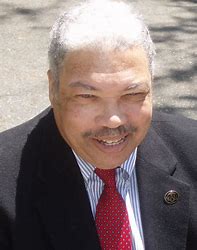
While others were yet to face the violence of integration, and mired in lynching, bigotry and hate, I had many other positive experiences with outstanding black friends: Chester Anderson (my classmate) earned a Physics PhD, and had great success at AT&T. He was recognized as an industry leader in speech recognition technology.
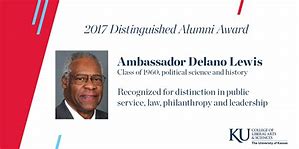
Delano Lewis (my Menninger colleague) earned his Juris Doctorate at Washburn. Among his many accomplishments, he became the head of NPR and was the United States Ambassador to South Africa.
Growing up, to me, race seemed easy; in my experience hard working, good people of any race could achieve the American Dream.
Slowly my awareness of the realities of bigotry grew and the pains of history outpaced the good of Curtis, Chester, Delano, and Linwood.
My American Dream remained — tarnished, but retained.
My early lesson is still true — under the skin, is the matter that matters.
The difficulty with racial dialog for me is my experiences are so different from what blacks AND whites experienced in the South. I have a hard time appreciating where they are coming from, and they certainly have a difficult time identifying with my experiences. For example whereas my first impression is character, their first impression is almost always based on race.
Racial dialog is tough. I will keep trying and I encourage you to do the same. We cannot control the national level of discourse; let us do what we can with those we touch.
Peace
Jerry
0 Comments